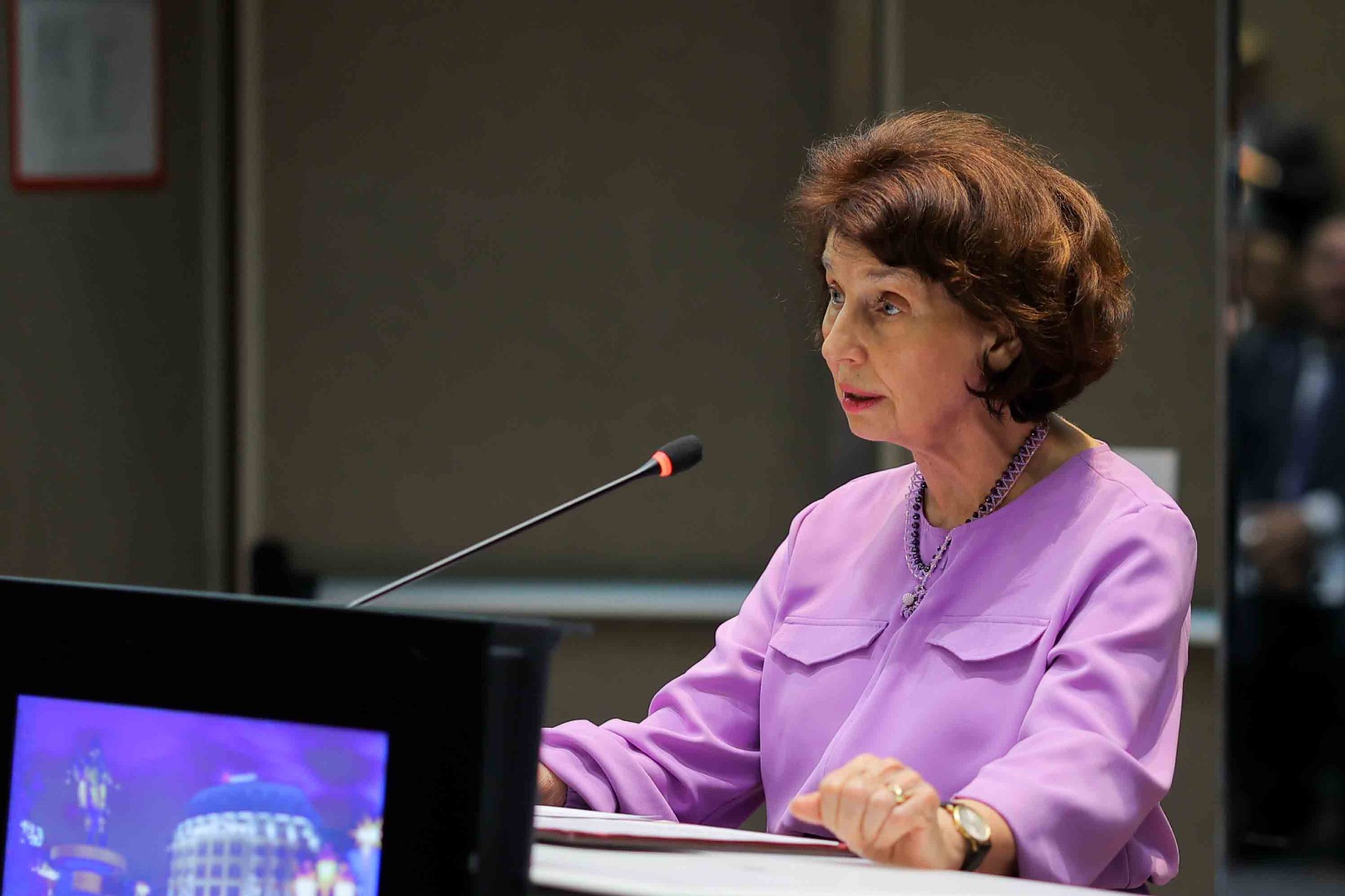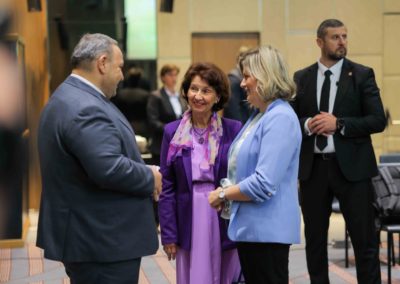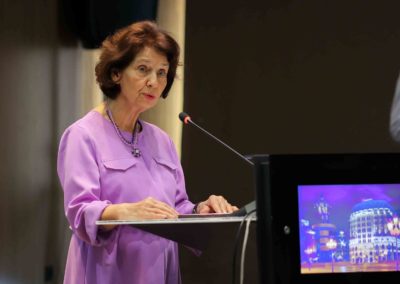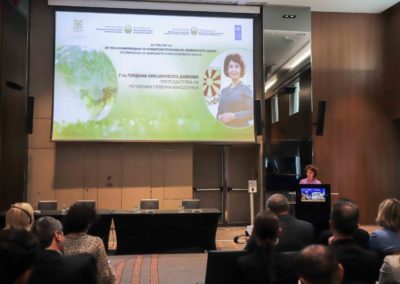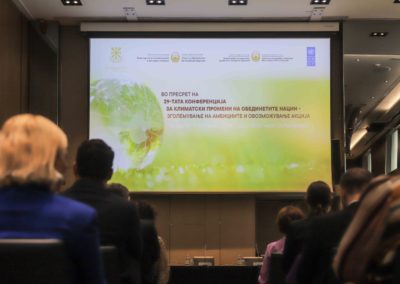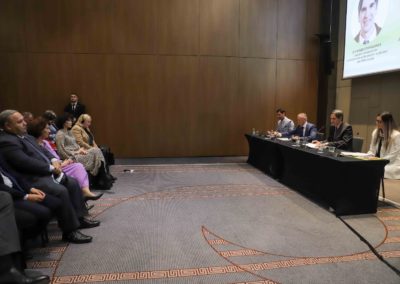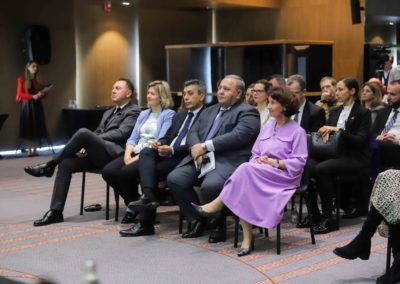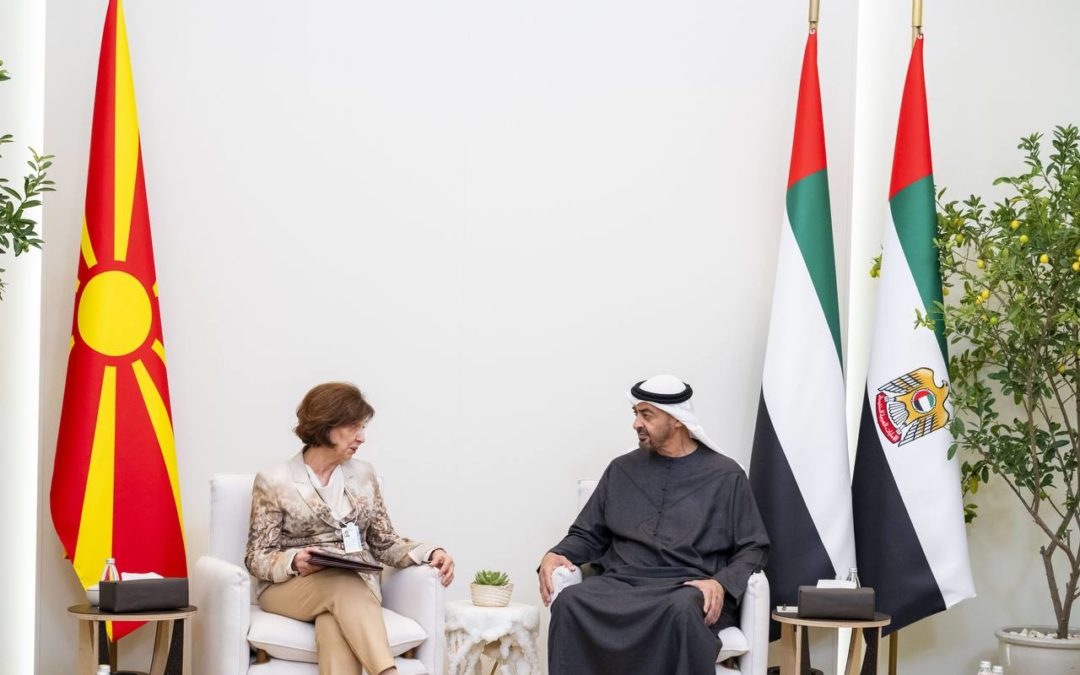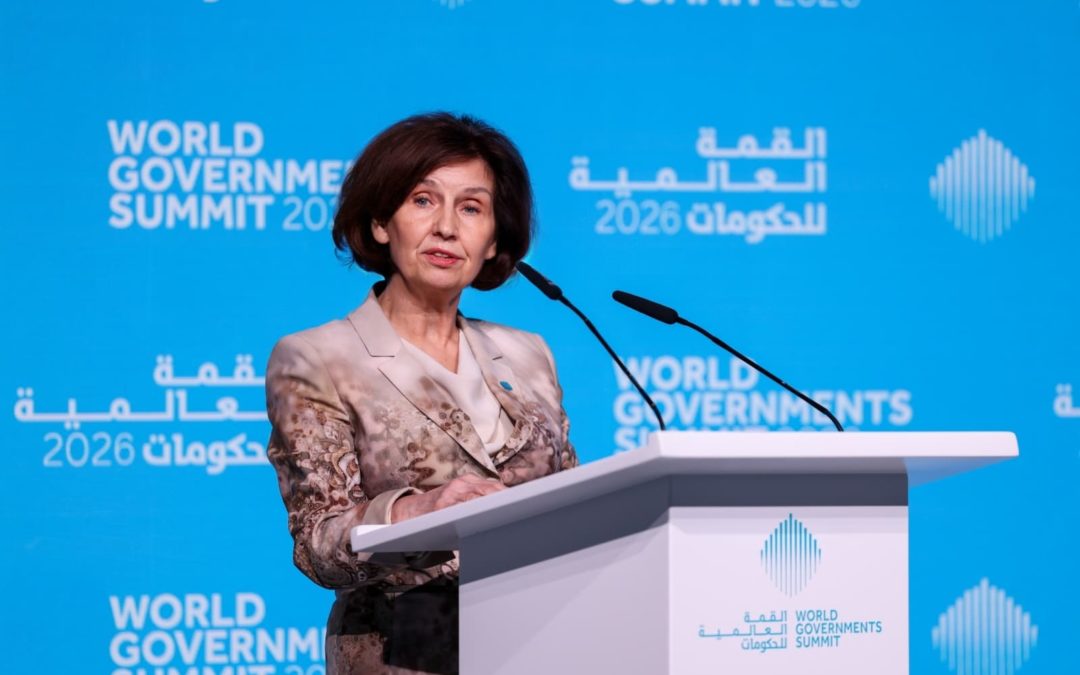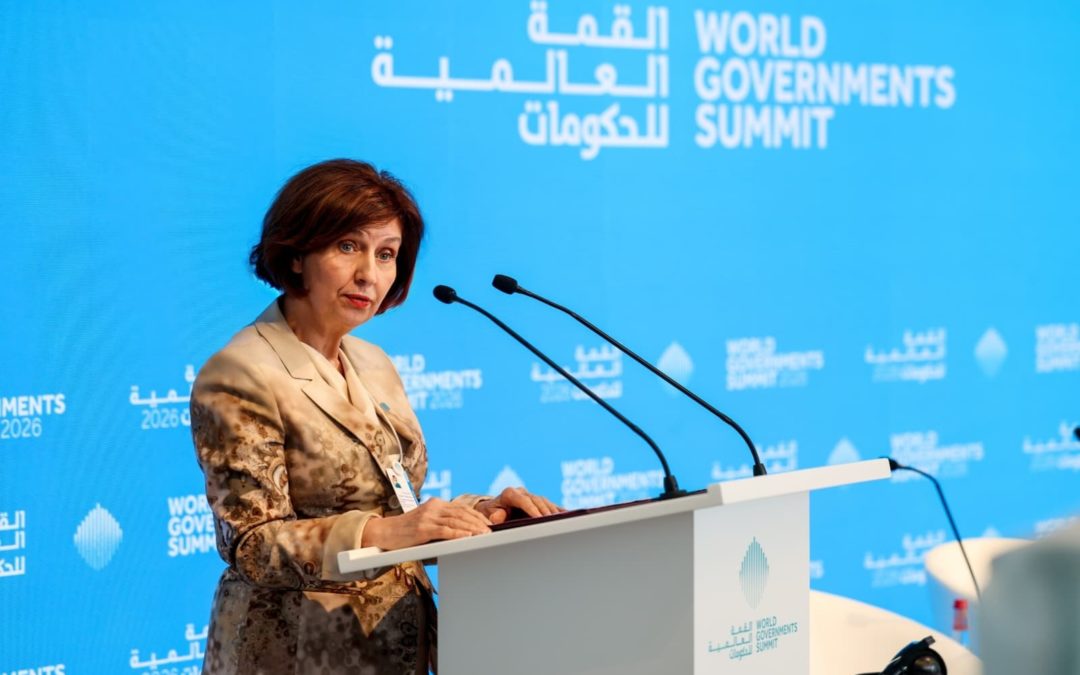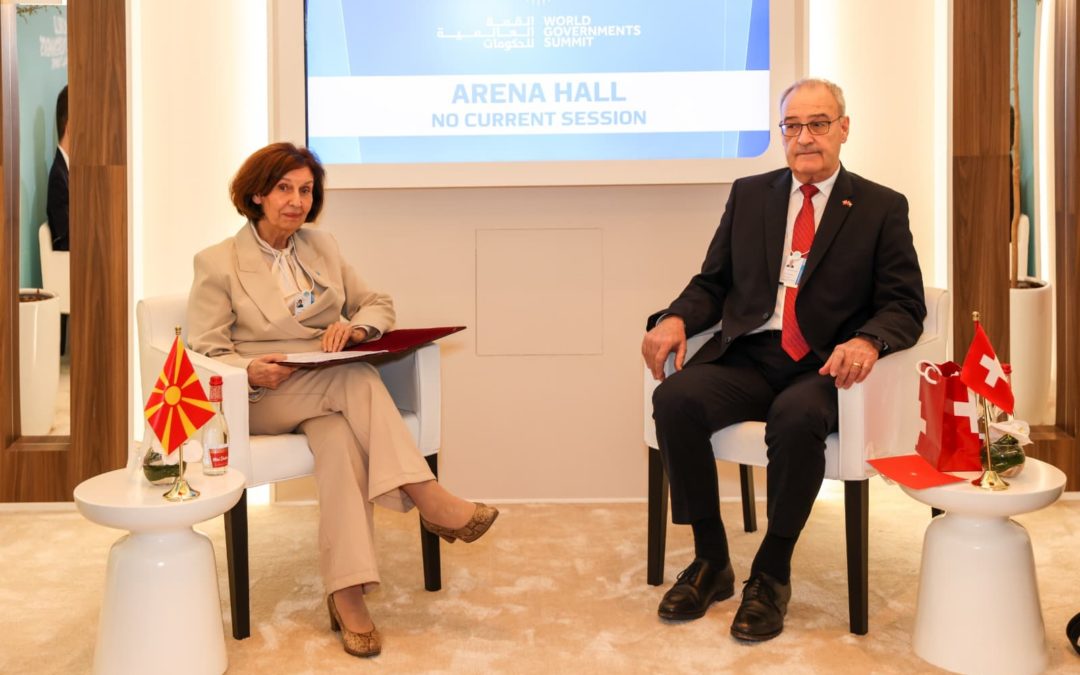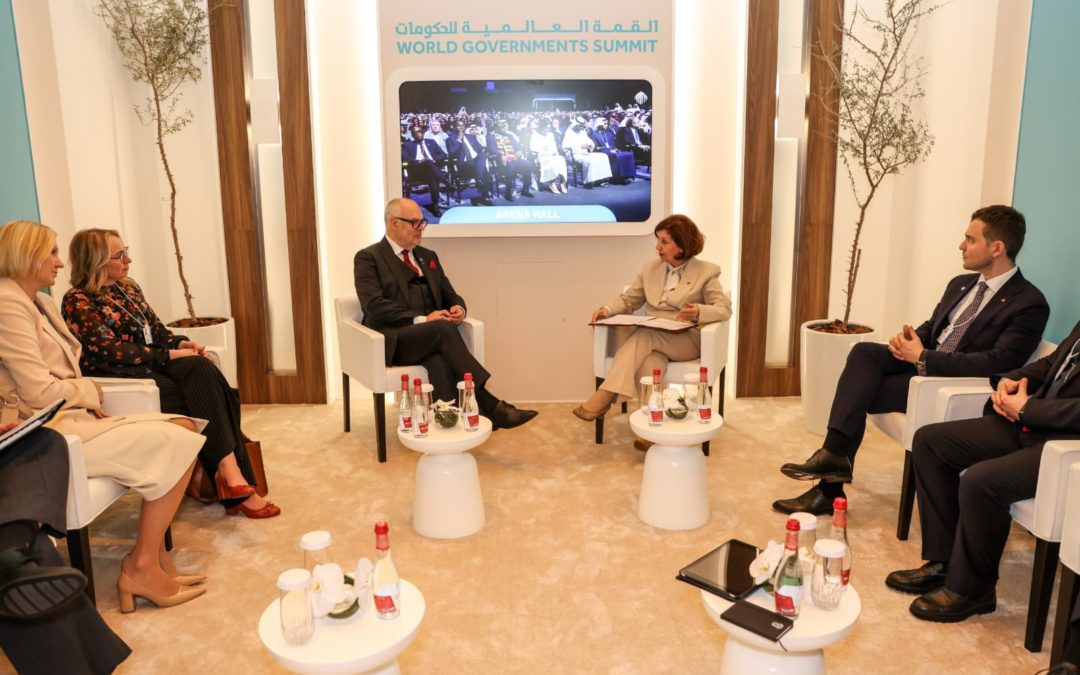President Gordana Siljanovska Davkova addressed today the event “On the eve of the 29th Conference of the Parties to the UN Convention on Climate Change – COP29: Increasing Ambitions and Enabling Action”, organized by UNDP in cooperation with the Ministry of Environment and Spatial Planning and the Ministry of Energy, Mining and Mineral Resources.
Below is the full text of the address of President Siljanovska Davkova.
Respected UNDP Permanent Representative,
Esteemed Ministers,
Dear Attendees,
I am honored to be today among the long-standing advocates for climate action, both from state and academic institutions, as well as from the non-governmental sector. Climate change is high on my agenda. Therefore, I thank the UNDP, which, in cooperation with the Ministry of Environment and Spatial Planning and the Ministry of Energy, Mining and Mineral Resources, organize today’s exchange of opinion session.
We are here to prepare for the upcoming 29th Conference of the Parties to the United Nations Convention on Climate Change – COP29, which is being held this year in Baku. In the coming weeks, Baku will be the center of global climate diplomacy, where countries, with the support of international organizations, will align their climate ambitions and actions. The goal of COP29 is to accelerate the implementation of the Paris Agreement, and thus keep global warming within 1.5 °C.
As President, I will lead our national delegation to the Climate Action Summit, where I will present Macedonian commitments, priorities and challenges in dealing with climate change.
Dear attendees,
In the world, the Macedonian share to the emission of greenhouse gases, and, with that, to global warming, is negligibly small. Still, at national and local level, this share is observed as a serious health, economic and security risk.
According to UNICEF, every 9th death among newborns in the country relates to polluted air. The Institute of Public Health, on the other hand, estimates that around 4,000 people die every year in the country from polluted air. Consequently, one of the main reasons for emigration is not the amount of salary, but the quality of life and, especially, the quality of the environment. The emigration of the young and active population leads to economic stagnation.
Apart from health and economic, greenhouse gas emissions are also a security risk. They are rapidly leading to climate change with potentially catastrophic consequences. Increasingly frequent extreme weather events such as heat waves, droughts, storms and floods, including in our region, are just a hint of what the future holds for the next generations. If negative climate scenarios come true, the question is whether we will even be able to talk about sustainability, or will we have to start thinking about survival, or the ability to live?
To deal with this triple risk, we must raise the issue to the highest level. Even as an MP in the Assembly, I advocated for introduction of the so-called “green chair”, i.e. a guaranteed place for the non-governmental sector to participate in discussions on legal solutions related to the environment and climate change. Recently, in the Security Council, I appointed an expert in the field of meteorology and climate change, Prof. Dr. Vlado Spiridonov. As a country, we must pay much more attention to climate change adaptation and disaster risk reduction.
We must also continue with legal reform. I look forward to the day when I sign the decree promulgating the Law on Climate Action. I believe this long overdue Law will be a turning point in our climate action. It is good that the final working version of the draft-law is in line with the latest European directives. But the most important thing is that the Law is consistently implemented. And this – for at least three reasons.
First, the Law will bring us closer to implementing one of the fundamental values of our constitutional order, which is “protection and promotion of the environment and nature”. The Law will help realize the constitutionally guaranteed human right “to a healthy environment” and will create a legal obligation for promotion and protection of nature. Recently, the Supreme Court established a principled position that the state is obliged to provide a healthy living environment and that everyone can demand protection of rights, especially in a situation where public authorities did not take the actions they were obliged to take in accordance with the Law.
The second reason is that with the Law on Climate Action we will practically implement part of perhaps the most difficult and expensive cluster in the negotiations for membership in the European Union – the “Green Agenda and Sustainable Connectivity”. This cluster includes the chapters on transport, energy, trans-European networks and environment and climate change. It is estimated that about EUR 3.1 billion are needed just for transition to renewable energy sources and improvement of energy efficiency. It is good that the Economic and Investment Plan and the Green Agenda for the Western Balkans of the European Union provide specific funds for this important area.
In that direction, COP29 will be essential for providing implementation funds. Hence, we must present our strategies, plans and activities and seek financial resources for implementation. Financing is the key to implementation, especially of the decarbonization of the energy sector. In the past period, I met with several senior representatives of the investment banks that are already involved in the Investment Platform for a just energy transition.
There is indeed a third reason why the Law is important. The goal of reform is transformation of habits. About 30 years ago, the great French philosopher and professor at the Sorbonne and Stanford Universities, Michel Serres, published a brilliant book entitled “The Natural Contract” in which he rightly argued that for the past few centuries, humanity has been at war with nature.
From ecological and climatic point of view, the total damage done to the world through exploitation and pollution is equal to the devastation that would be left by a world war. Our current peacetime economic relations regrettably produce the same results as global conflicts.
We need a social contract with nature, i.e. a natural contract based on which we will treat nature as a partner, not as an opponent. To take this step, we have to deal with two types of pollution. The first is, of course, material, technological and industrial pollution of air, soil and water. But much more dangerous is the second, immaterial pollution of individual and social consciousness that treats nature as a resource to be ruthlessly exploited. If we want to fight against the pollution of the environment, we have to fight against the pollution of human consciousness. That is the goal of every law and every reform – to make people aware and help them change their production, consumption and, in general, life habits.
To solve the climate crisis, we must start thinking long-term, not short-term, stop planning only until the next election, but plan for the next generations.
At the very end, I believe that this event, through the open discussion and exchange of expert opinions, will help us refine the attitudes we will represent as a country at COP29 in Baku.
Thank you.

